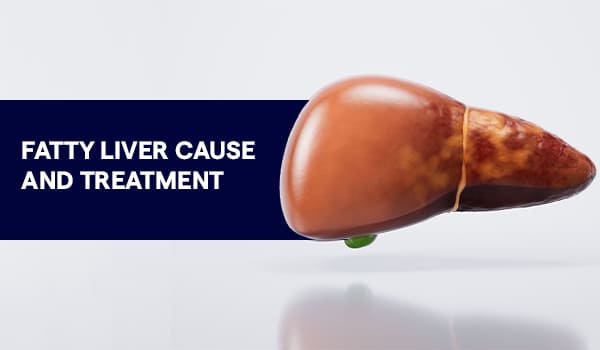
Fatty liver disease is mainly of two types: The first type is known as non-alcoholic fatty liver disease (NAFLD), which affects adults, and its prevalence has been estimated to be between 6.7% and 55.1%. The second type is alcoholic fatty liver disease, which occurs due to excessive alcohol consumption. In India, almost one-third of cases with an asymptomatic elevation of liver enzymes are caused by NAFLD.
Fatty liver disease, medically known as hepatic steatosis, occurs when fat accumulates in the cells of the liver. The liver filters toxins from the blood and converts food into energy. However, excessive fat in the liver can lead to inflammation and damage to liver cells. The main cause of fatty liver is an unhealthy lifestyle, including a diet high in saturated and trans fats, a lack of exercise, and excessive alcohol consumption.
There are various reasons for fatty liver disease today, as follows:
Dietary Shifts: The shift towards processed foods loaded with sugar, unhealthy fats, and refined carbohydrates is a major culprit. Our fast-paced lives often lead to grabbing convenient, calorie-dense options, and neglecting the intake of essential nutrients from fruits, vegetables, and whole grains.
Sedentary Lifestyle: Our work culture and increased screen time contribute to a lack of physical activity. Regular exercise is crucial for maintaining a healthy weight and overall well-being, but it often takes a backseat in today's busy schedules.
Stress Levels: Chronic stress is a hallmark of modern life. This constant state of fight-or-flight can negatively impact our health, including liver function. Studies have also shown a link between NAFLD and conditions such as obesity, type 2 diabetes, and metabolic syndrome, all of which are on the rise in India.
The alarming prevalence of fatty liver disease in India is much higher than the worldwide average of 25%. Furthermore, studies have shown that NAFLD is more common in urban areas than in rural areas, indicating that the adoption of a Western lifestyle also contributes to its rise in India.
In addition to lifestyle factors, genetic predisposition, including inherited traits that affect fat metabolism and liver function, also plays an important role in the development of fatty liver disease. Some people may have a genetic tendency to accumulate fat in the liver, making them more susceptible to the condition. Individuals with a family history of NAFLD need to be aware of their risk and take steps to prevent the disease.
Common fatty liver symptoms include:
• Abdominal pain: Some adults with fatty liver disease may experience pain in the upper right side of their abdomen. This pain may be dull and constant, or it may come and go.
• Swelling in the abdomen: As the liver becomes inflamed and swollen, it can push against other organs in the abdomen, causing swelling in the belly.
• Enlarged liver: In many cases, the liver may enlarge due to fat accumulation.
• Jaundice: This is a yellowing of the skin and eyes that occurs when the liver is not functioning well.
• Itchy skin: Some people with fatty liver disease may experience itchy skin due to a buildup of toxins in the body.
• Dark urine: This may indicate that the liver is malfunctioning.
• Loss of appetite: People with fatty livers also experience a loss of appetite and weight.
• Fatigue: Fatigue is characterized by feeling tired and lacking energy, even after getting enough sleep.
Preventive Actions for a Healthy Liver:
Sir Ganga Ram Hospital is the best liver transplant hospital in India and if you or someone you know is experiencing fatty liver symptoms such as fatigue, abdominal pain, or jaundice associated with fatty liver disease, it is crucial to get medical attention for proper diagnosis and management promptly. Sir Ganga Ram Hospital is renowned for its team of experienced hepatologists and gastroenterologists, state-of-the-art diagnostic facilities, and comprehensive fatty liver treatment options for fatty liver disease. Their services include personalized dietary modifications, tailored exercise programs, holistic natural remedies, medication management, and surgical interventions like weight loss surgery when deemed essential.
Book an appointment with Sir Ganga Ram Hospital to learn about fatty liver disease and explore personalized fatty liver treatment options.